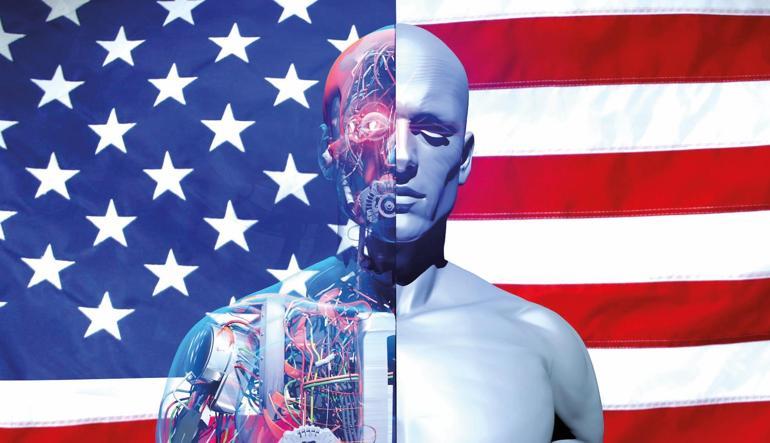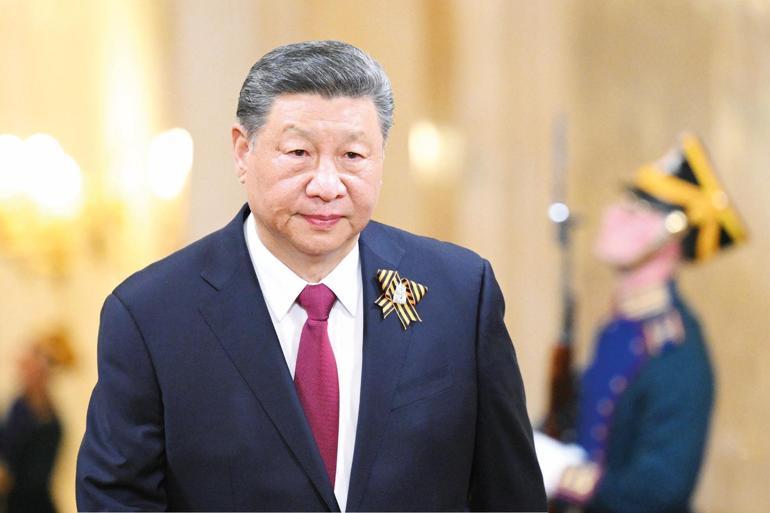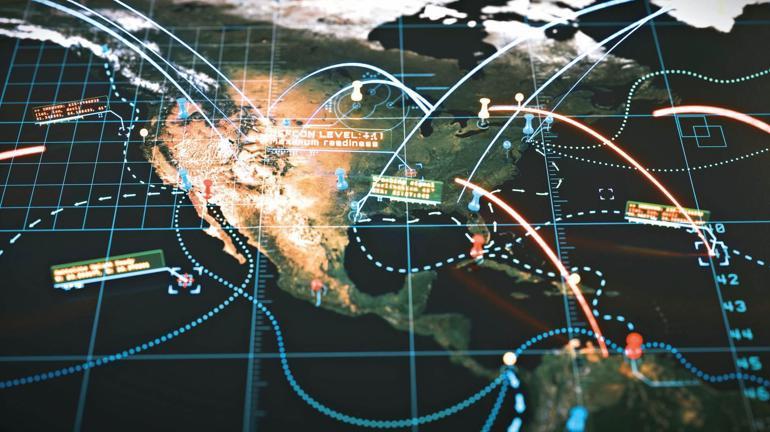'This struggle is not only technological but also ideological and strategic'

Meltem Firatli / [email protected]
Creation Date: May 11, 2025 07:00

◊ Did Donald Trump's announcement of the Stargate Project as soon as he took office turn the competition into a war?
This move can be considered a strategic move to protect the US’s leadership in the field of artificial intelligence and to counter China’s increasing technological power. It is noteworthy that this large-scale investment by the US comes right after China announced its artificial intelligence investment fund on January 19. This can be considered an indication that the technological competition between the two countries has now clearly evolved into a ‘war’ dimension.
◊ You call this race the 'cold war of the 21st century'. Can you explain this a little?
Just like the Cold War between the US and the Soviet Union in the 20th century... But this time, instead of an arms race, there is a competition over algorithms, data centers and chips. This struggle is not only technological, but also has ideological and strategic dimensions. While the US is trying to create an ecosystem that represents liberal democratic values, China aims to develop an artificial intelligence system under its own state control. The Americans describe this situation as 'Cold War 2.0 Against Autocracies'.

◊ What is the size of the artificial intelligence market?
The global market size, which was $279.22 billion last year, is projected to reach $1,811.75 billion in 2030, with a compound annual growth rate (CAGR) of 35.9 percent from this year to 2030. This growth is accelerating the adoption of advanced technologies in sectors such as automotive, healthcare, retail, finance and manufacturing.
'Digital sovereignty'
◊ The most widely used artificial intelligence tools in the world are in the hands of the USA. In this case, we can say that they are ahead in the race...
The US is clearly ahead of the competition. In 2024, the most widely used AI tool among developers was US-based OpenAI’s ChatGPT, with an 82 percent usage rate. GitHub Copilot is second with 44 percent, and Google Gemini is third with 22 percent (according to Statista data). The US has significant advantages over other countries in key indicators such as research papers, private investment, and patents. In 2023, it produced the highest quality AI research, developed the most significant machine learning models, spent the most, and had the most AI M&A activity.
◊ Is the main goal of the AI war between the two countries to gain control over the global digital infrastructure?
AI has become not just a technology, but also a strategic tool for economic, political, and military power. The country that controls the global digital infrastructure can set the rules of the digital economy, manage the flow of data, and expand its digital sovereignty.
What will be the next moves of the two countries?
USA
◊ Increasing investment in artificial intelligence infrastructure.
◊ Tighten chip export controls to China.
◊ Expanding military applications of AI technology.
◊ Strengthening technological cooperation with allies.

CHINESE
◊ Developing domestic chip production capacity to bypass export controls.
◊ Increasing global impact by developing open source artificial intelligence models.
◊ Deepening technological cooperation with developing countries.
◊ Increasing efforts to create AI standards.
'Maintaining balanced relationships...'
Where is Türkiye in this 'war'?
Our country is following a strategic balance policy, trying to find a way between two powers and striving for autonomy in the global technology race. This strategic balance policy can allow Türkiye to continue its relations with both sides and progress without disrupting its technological development. This competition presents both risks and opportunities for Turkey. The risk could be being stuck between great powers and increasing technological dependency. The opportunity is the advantages of being in a strategic position between two blocks and the opportunity to develop its own technological capacity. It is critical for Türkiye to strengthen its domestic artificial intelligence ecosystem in the upcoming process, increase its autonomy in strategic technology areas, maintain balanced relations with both powers, increase technology transfer opportunities by developing regional cooperation, and invest in artificial intelligence training and talent development.
Other countries that stand out in the race
The United Kingdom: Ranked third, according to Stanford’s Global Viability Tool. And it strengthened its global leadership position by hosting the first AI security summit in 2023.
United Arab Emirates: Aiming to become a global leader in artificial intelligence, the United Arab Emirates is investing in research institutions such as the Technology Innovation Institute and is currently in fifth place.
France: It is also home to Mistral, the most important large language model to emerge from Europe.
Singapore: Efforts to join the US-China competition by making significant investments in the field of artificial intelligence.

Fronts of competition
Chip manufacturing and export controls: The US imposes export controls to restrict China's access to high -tech chips.
Data center infrastructure: As part of Project Stargate, plans are to build up to 20 large AI data centers in the U.S. Data centers are seen as the “factories” of AI.
Advanced AI models: Large language models developed by companies such as OpenAI, Google, and DeepSeek are an important indicator of technological superiority.
Military applications: Both countries are investing in AI for military use. The US Department of Defense has released a strategy to accelerate AI capabilities to “ensure decisive superiority on the battlefield for years to come.”
Semiconductor industry: The semiconductor industry is gaining great importance in the age of artificial intelligence . In particular, the production of AI chips such as GPUs and NPUs has become a strategic priority.
hurriyet





